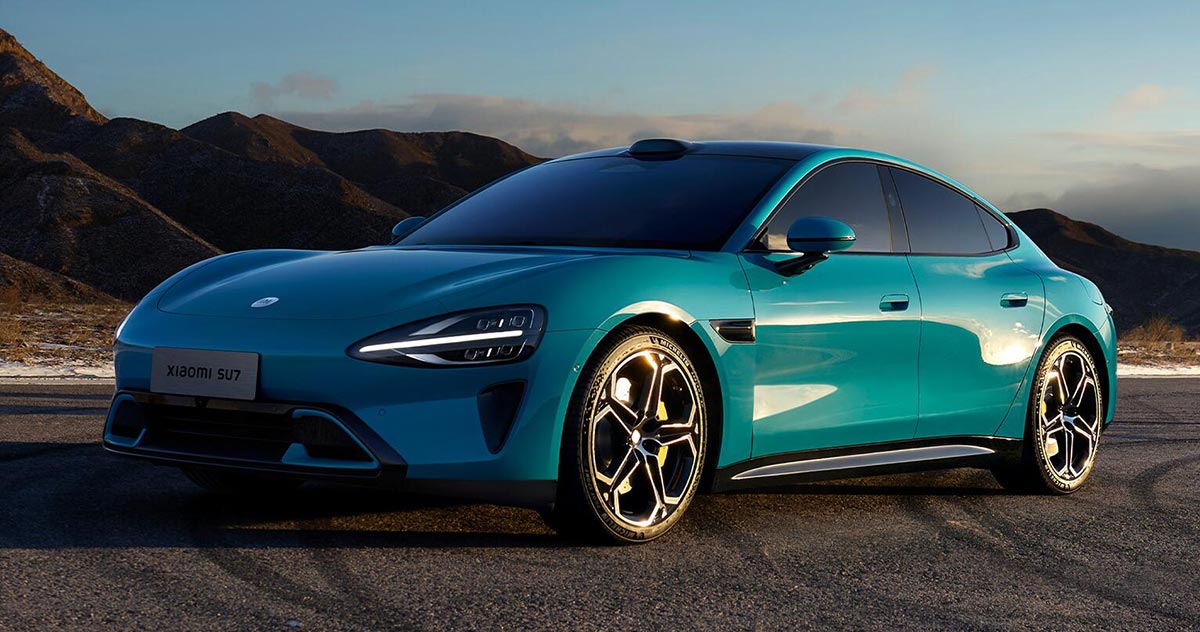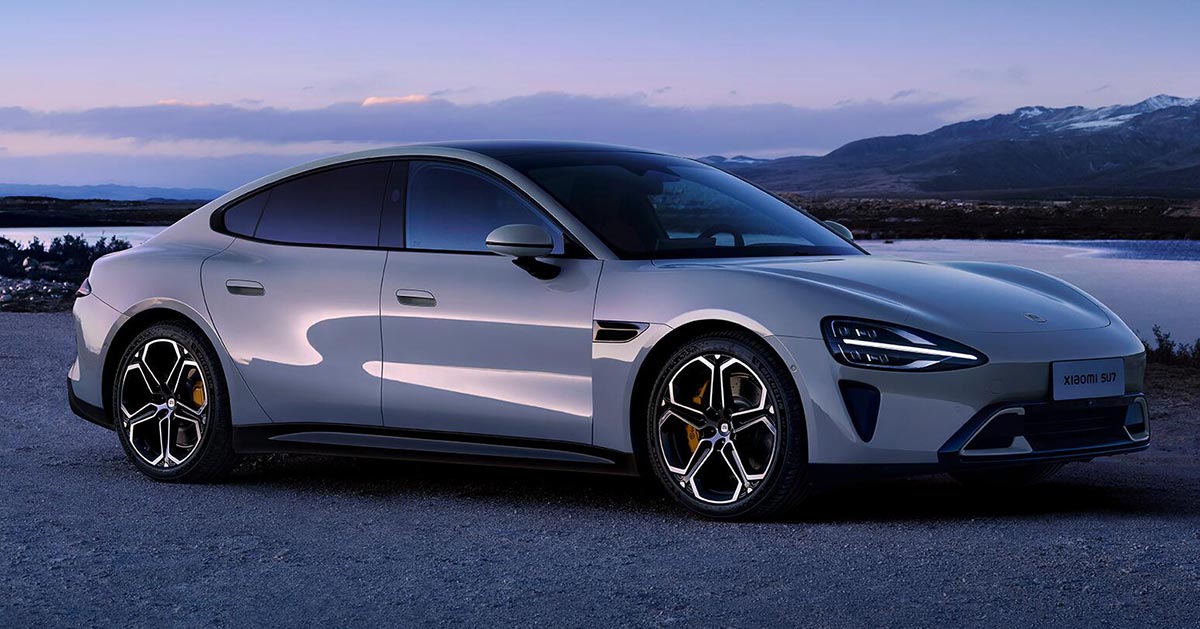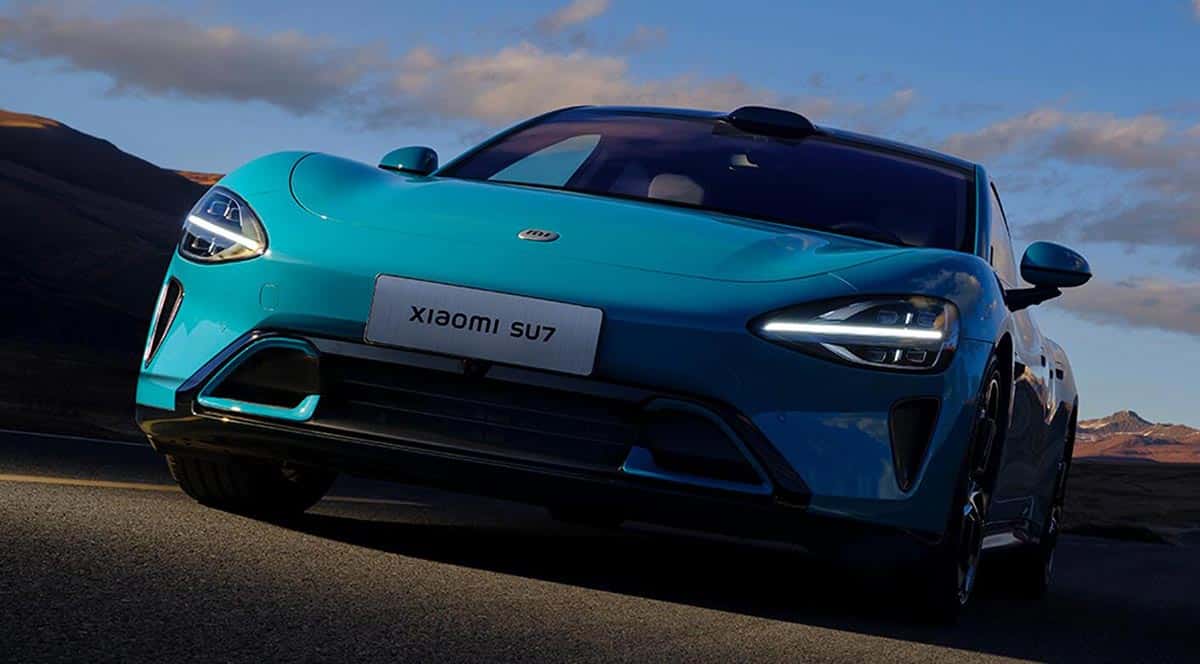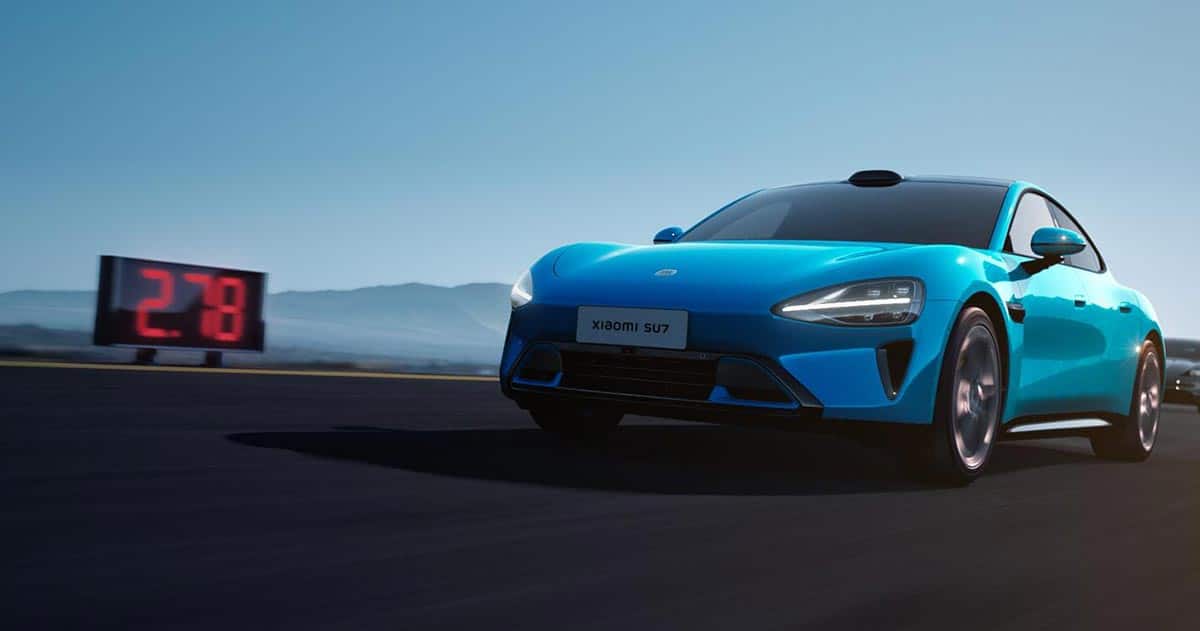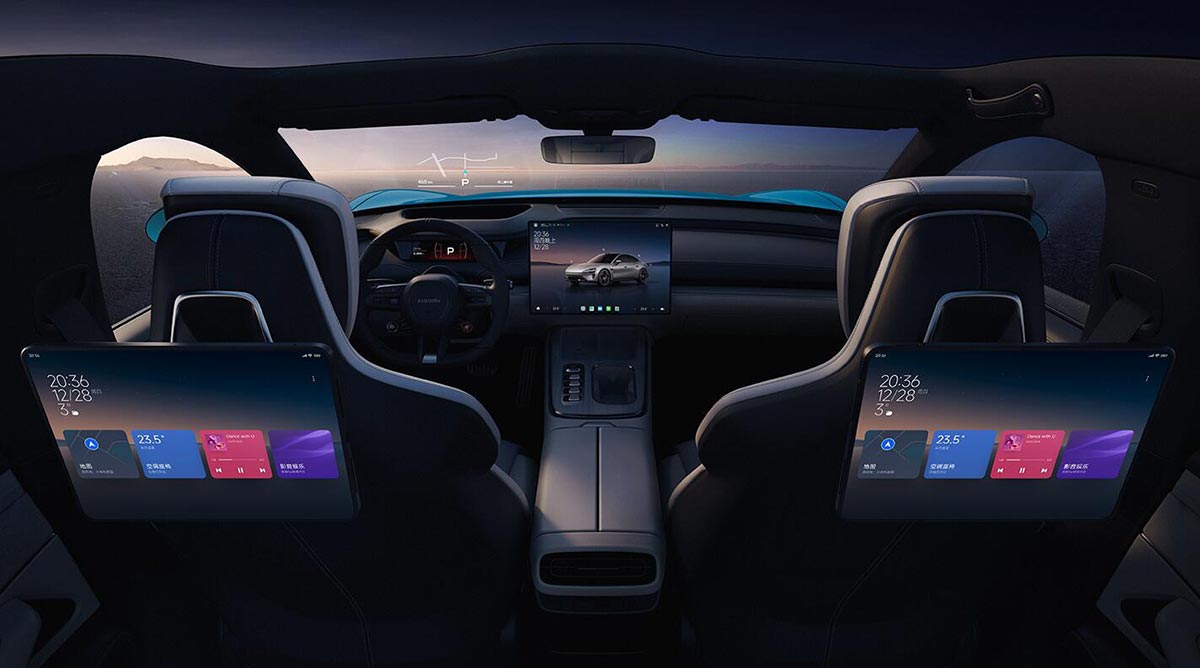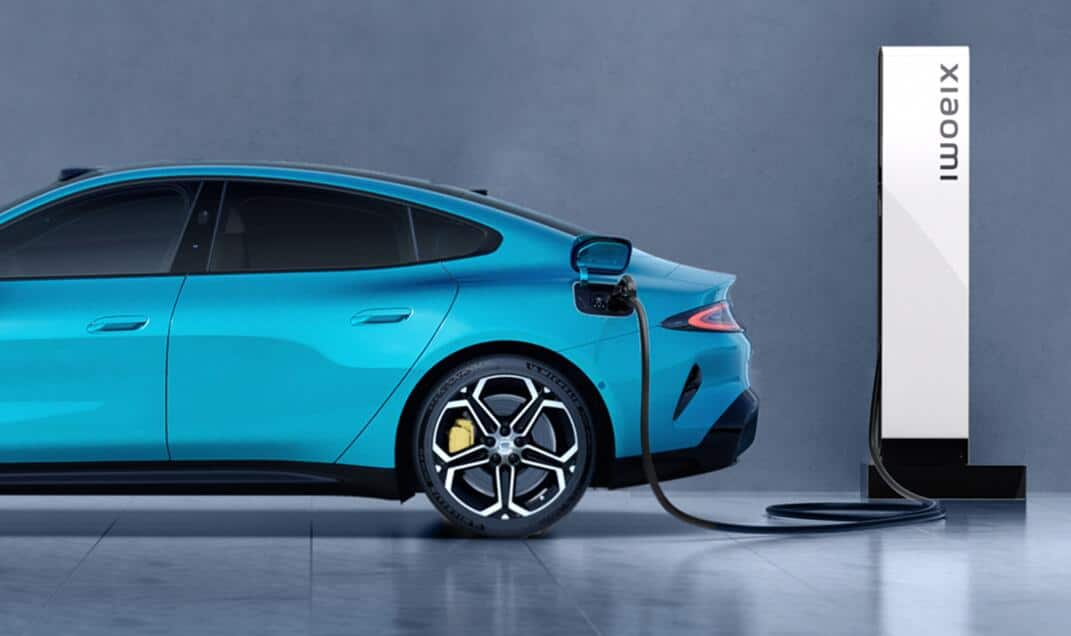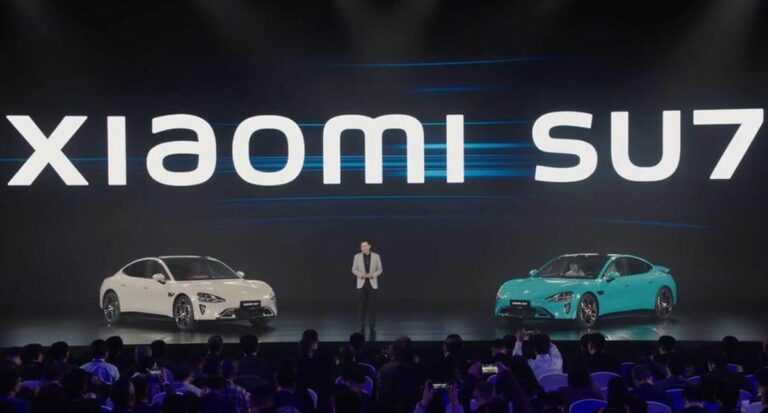Xiaomi wants to become one of the top five car companies in the world in 15-20 years and aims to be among the top-tier players in the smart driving space in 2024.
(Image credit: Xiaomi EV)
Chinese smartphone giant Xiaomi has officially unveiled its first electric vehicle (EV) model and announced its ambitious goals in the automotive market.
The model is called Xiaomi SU7, where the SU stands for Speed Ultra, which the company said means it will be a performance beast.
The SU7 has an exterior design that somewhat resembles a Porsche model, although Xiaomi's founder, chairman, and CEO Lei Jun said it's the result of the company's designers optimizing the proportions of the body lines.
Xiaomi hopes to build a dream car as good as a Porsche or Tesla, Lei said.
Xiaomi has equipped the SU7 with powerful hardware, and while pricing has not been announced, such models are usually seen as likely to be priced around RMB 300,000 yuan ($42,180). The SU7 will officially go on sale in a few months, and pricing is expected to be announced at that time.
Xiaomi officially announced its entry into car building on March 30, 2021, stating that its initial investment in the automotive business would be RMB 10 billion, with a projected investment of $10 billion over the next 10 years.
Xiaomi has high hopes for its first model, and Lei said in an interview with CCTV earlier this month that he came into the car-making business with an aim to win.
The SU7 is a mid-to-large-sized sedan, measuring 4,997 mm in length, 1,963 mm in width and 1,440/1,455 mm in height, with a wheelbase of 3,000 mm. This size is larger than Nio's (NYSE: NIO) ET5 and Tesla's (NASDAQ: TSLA) Model 3.
The SU7 has a wind resistance of just Cd 0.195, which Xiaomi said is the lowest among production cars worldwide. One of Xiaomi's demo videos shows the model that earned that result has no LiDAR on the roof.
Although the SU7 is aimed at the mainstream mid-to-high-end EV market, Lei frequently compared the model to luxury models including the Porsche Taycan Turbo and Tesla Model S during today's three-hour technology launch.
The dual-motor version of the SU7 is powered by electric motors with a maximum combined horsepower of 673 PS, peak power of 495 kW and peak torque of 838 Nm.
The powertrain allows the SU7 to sprint from 0 to 100 kilometers per hour in 2.78, faster than the Porsche Taycan Turbo's 2.93 seconds, Lei said.
The SU7 supports a top speed of 265 km/h, beating the Porsche Taycan Turbo's 260 km/h and the Tesla Model S's 250 km/h.
The model will feature the Qilin Battery from CATL with a capacity of 101 kWh, which can be recharged in 5 minutes to get a range of 220 km and 15 minutes to get a range of 510 km.
The dual-motor four-wheel drive version of the SU7 will have a CLTC range of 800 kilometers, making it the best-performing four-wheel drive vehicle in the Chinese market, Xiaomi said.
Qilin Battery, a new battery unveiled by CATL on June 23, 2022, is an innovation in the structure of the battery rather than the chemistry system.
Xiaomi didn't specify, but the Qilin Battery used in the SU7 will be based on lithium ternary chemistry which typically has higher energy density.
A previous regulatory filing indicated that the model will also use lithium iron phosphate batteries from BYD (OTCMKTS: BYDDF).
Xiaomi built its own battery pack production plant and devoted thousands of engineers and 2 years with CATL to develop the 800 V battery pack, Lei said at today's launch.
Like many other EV makers today, Xiaomi has introduced integrated betting technology, saying its factory uses a 9,100-ton die-casting machine in order to consolidate parts that would otherwise require dozens of components into one.
Lei unveiled ambitious goals at the start of the launch, saying Xiaomi wants to become one of the top five global car makers in 15-20 years.
Xiaomi also wants to be one of the top-tier players in the smart driving space in 2024, Lei said.
To learn more about the launch of the Xiaomi EV, you can click the link below for live text updates.
($1 = RMB 7.1127)

